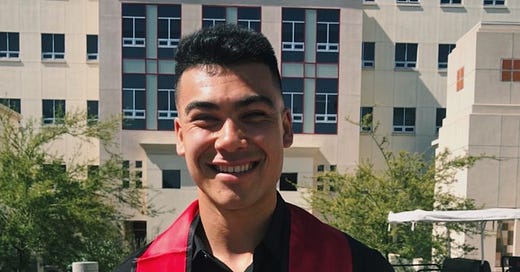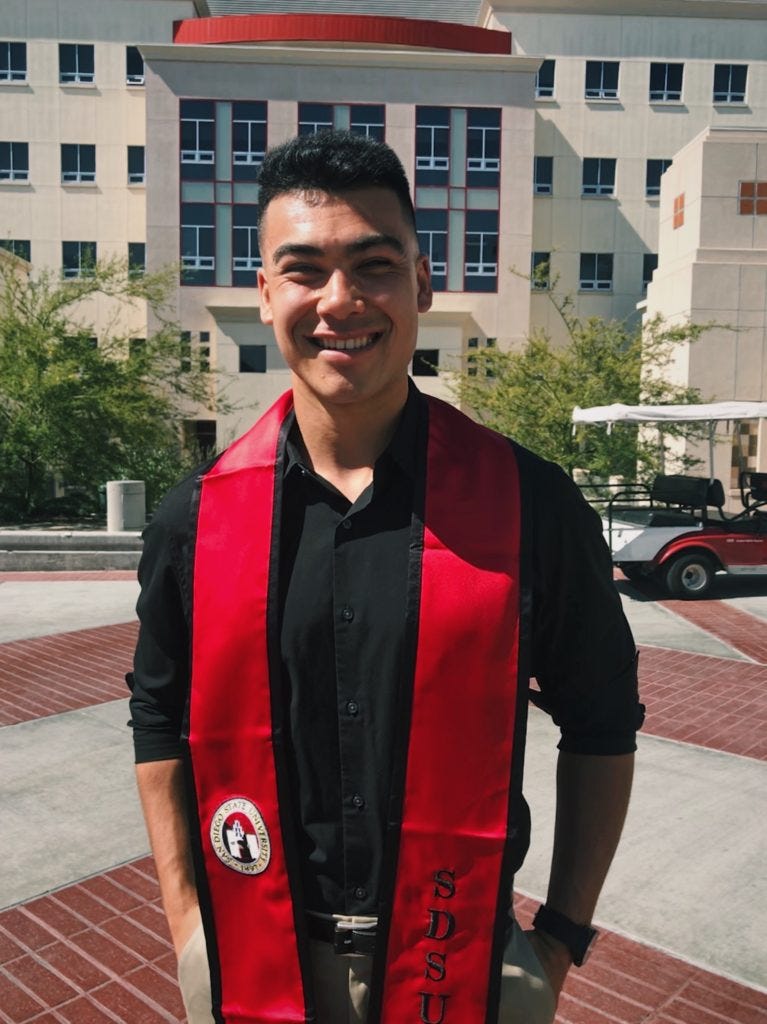
What I Wish I Knew Before I Graduated College
I watched my graduation cap drift slowly down to the floor as if it were enjoying the view up there. I had thrown it proudly and with vigor. Four years culminated in one triumphant toss as I stood shoulder to shoulder with my peers.
The faces I saw around me were the faces I’ve seen since the freshman dorms. The same faces I’ve seen both drunk at fraternity parties and over-caffeinated in the library. Those courageous, valiant faces. The dark circles etched beneath their eyes betrayed the graduation festivities from the night before.
I kept forgetting that my own face (and tired eyes) was among them too. Together we formed a sea of smiles and tears of joy.
We had made it.
All of us stood on the very top of the mountain that day, the very mountain that we spent the previous handful of years scaling. Ecstasy. Excitement. Pride. A myriad of joyous emotions stacked up higher than any semester’s worth of textbooks. Many scantrons and Red Bulls later, there we were: the highest proverbial peak that most of us had ever reached. We were world-beaters. The top of the food chain never looked this good.
And the next morning, everything changed.
Things Fall Apart
On move-in day during my first year of college, I remember meeting some graduating seniors from that year. Those seniors — four years older than my freshman self — had tried to warn me how fast college happens,
“Keep your eyes open. You’ll be finished before you know it kiddo.”
And they were right.
Most people describe the feeling after graduation as bittersweet. That first day after attaining my degree, I tasted mostly the bitter part.
I did the goodbyes and see you later’s. Most were difficult. Most were sad. Some were admittedly a bit of a “good riddance.” I watched my roommates move out. I cleaned out my room with boxes. We all folded and packed our black gowns that we had donned just one day before. From that day on, the phrase “roommates” became “my roommates from college.” “Home” became “the house that I lived at when I was in college.”
We graduated. College was over.
It’s been almost one full year since I graduated. I’m 22 years young and, just like college, my first year as a degree-holder in the “real world” happened quickly and provided new lessons for me to learn.
What Exactly Happens When We Graduate?
After graduating, the biggest shift isn’t the decrease in Cup Noodles per week. It isn’t in the homework assignments or alcohol consumption (the former is more susceptible to change than the latter). The shift is systemic. An internal, unavoidable alteration that thrusts us — or drags us — into our next chapter.
For the first time in nearly two decades, our identity is no longer “student.”
We no longer carry that universally respectable title and the primary responsibility of learning full-time. Graduation eradicates this chapter and, with it, our identity that we’ve adopted since kindergarten. When adults in that big, scary adult world ask us what we do, we can no longer reply innocently, “I’m a university student.” Our identity is ripped out from under us like an outdated rug.
“Student” becomes our previous history rather than present reality.
Some people are treated like “real adults” for the very first time in their lives when they leave college. This becomes part of the expectation we must rise to meet as fresh graduates, part of the expectation that we didn’t carry before (when we were “just” students).
After graduation, “just” is added to our previous identity as if it was something nonchalant, something to forget about and move past. Our time on the mountaintop is brief, then we must continue on and make room for those catching up to us.
Our Degree Left Out a Crucial Lesson
My college curriculum didn’t include a class that taught me how to handle an identity shift, even though this remains the single most inevitable occurrence post-graduation. Why didn’t my professors ask me things like:
Who are you going to be when you leave college? What will you choose to identify with?Will you let your job become your new identity? What role does passion play in forming your identity?
Not only does our identity undergo a cataclysmic shift, but it shifts based on our own actions, choices, and omissions. We determine our own identity once we graduate from college.
For many of us, this is the very first time we are faced with this decision of identity. Who will we be — who can we be — if not a student?
It isn’t a secret, this unavoidable identity shift, yet it is spoken of infrequently. We enter the adult world with a new degree but without much of that coveted “real world” experience. We’ve been in classrooms our whole lives. Many of us have never received a salary or worked more than part-time. Some of us even have never held a job before.
What should we identify with? Who should we identify as?
For better or for worse, most of us don’t leave college and immediately make six-figure salaries. We often cannot afford that many shiny things just yet. This isn’t necessarily a bad thing, though we must come to terms with the notion that a college degree isn’t a guaranteed ticket to success, let alone identity.
After reaching the pinnacle of our education, we wake up the next morning right back at the bottom of the totem pole. Our time at the top is brief. The very next step requires us to build back up again from the bottom. Why didn’t someone whisper these things in our collective ear when we walked across that stage on our final day of college?
Why didn’t anyone scream it?
What Direction Will You Aim In?
We are left with choices to make when we graduate.
Some people pursue careers; some people work part-time; some people move home. Or, people travel, move away, get married. A lot can happen after students stop being students.
As it happens, none of these are the wrong choice. Picking the what varies. Different people do different things. The options of what to do far outnumber the potential how within each of these paths. What people choose to do is less critical than the manner in which they go about their decision. The how is the linchpin; it becomes the way you frame your new identity.
How are you going to approach your new “what?”
How are you going to aim in the right direction?
How are you going to ensure your identity shift is positive rather than negative?
How can you frame this identity shift as a stepping stone rather than a downward spiral?
Whether a barista or accountant or store manager or engineer or traveler, each of these how’s should be applied and reflected upon to each of these disparate paths. The job or pursuit or livelihood itself is but the vehicle with which you aim in a chosen direction.
Without a well-aimed how, your what — a source of new identity — can end up creating resentment, something that makes you look back at your college years as if they were the very best memories you’ll ever make.
How would we, could we, go on if we believe our best years are already behind us?
The Takeaway
I was never told to beware of an identity shift upon graduating. It happened abruptly. One day I woke up and realized I was no longer a student. The same will happen to you. My hope is that upon reading this article, you can be better prepared than I was.
When we graduate we experience one of the most dramatic identity shifts of our lifetime.
1. We are left to choose and pursue a new identity (despite being left at the bottom of the totem pole).
2. We choose both what and how.
How are you going to frame your new identity? How can you make this next step — and all it entails — aim in the right direction?
How we approach our next step holds more gravity than the step itself. It determines the manner in which we carry ourselves and the eagerness with which we wake up in morning. It can weigh heavily on our identity like chains or it can be the air that keeps it afloat.
Welcome your new identity. Take action that pushes you towards something and not away from something. Choose how you frame your new identity so that when you talk about it, you are proud rather than remorseful. An identity shift shouldn’t be something to fear, but something to embrace head-on. A new identity can be the catalyst for progress. It creates the potential for better you’s.
Prepare for a change. Pick a direction to aim in. Step into the future with open arms. Don’t mourn not being a student anymore, embrace the potential of meeting your new self.











